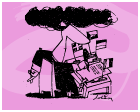

Retrofitting instead of banning old diesel vehicles. Photo: © Shutterstock – Gulliver20
Germany to spend €2 bn to avert driving bans
The German government had previously pledged €1 billion to help improve air quality, but after meeting with municipal representatives in December, Chancellor Angela Merkel said this program would be increased to €1.5 billion by 2020. She said the federal government would also set aside an additional €432 million for hardware retrofits of small trucks with older diesel engines.
One way to clean up older diesel cars is to fit more effective exhaust filters to cars. The issue of hardware retrofits, which municipalities want, was not resolved at the meeting. German Transport Minister Andreas Scheuer said his ministry would, by the end of 2018, present new guidelines, and that he expected it to take around six months after that to develop hardware retrofits, which would then need to be approved by the Federal Motor Transport Authority too.
In November, a German court ruled that the western state of North Rhine-Westphalia must ban older diesel vehicles in Gelsenkirchen and Essen. Other German cities also face the risk of diesel driving bans imposed by judges, including Aachen, Berlin, Frankfurt, Stuttgart, Düsseldorf and Mainz.
Merkel said 249 German cities had nitrogen oxide concentrations below the EU limit of 40 μg/m3, while 65 cities had higher concentrations than that. Of those 65 cities, 40 had a reading between 40 and 50 μg/m3 and should therefore not have driving bans because the measures already agreed are expected to reduce the concentrations quickly, Merkel said.
Source: Reuters, 3 December 2018

 Download this issue
Download this issue























